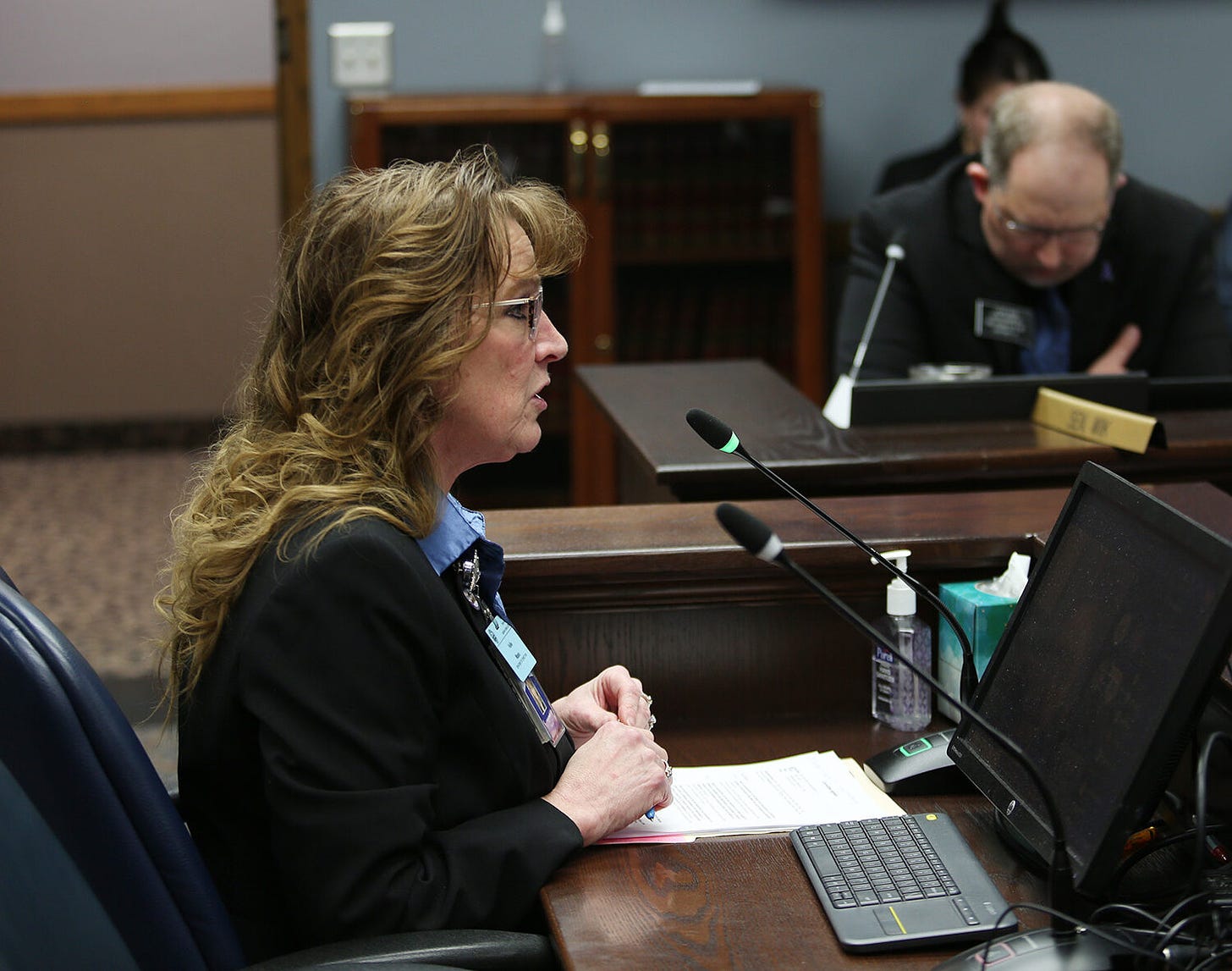Prison official: Sweat lodges rebuilt, operating at state penitentiary after contraband found
Courtesy of South Dakota Searchlight

Corrections Secretary Kellie Wasko told the South Dakota Corrections Commission that prison staff found contraband in sweat lodges disassembled during a weekslong prison lockdown earlier this fall in Sioux Falls.
She also said the lodges have been rebuilt and became operational again a few weeks ago on the grounds of the South Dakota State Penitentiary. Sweat lodges are ceremonial spaces for Native Americans. Ceremonies involve pouring water over hot rocks in an enclosed dome while prayers are sung, typically in an Indigenous language.
Wasko gave the commission an update on the lockdown Tuesday during the advisory group’s last meeting of the year. The secretary offered the same presentation she’d shared last month with the Legislature’s Government Operations and Audit Commission, which includes several photos of contraband seized during the lockdown.
Most of the details on the results of the 17-day lockdown were shared with lawmakers behind closed doors during that October audit committee meeting. The following day, Teresa Bittinger was out as penitentiary warden. Through a spokesman, the Department of Corrections declined to share if she’d resigned or been let go, saying the agency can’t share personnel information.
NEWS: Rep. Dusty Johnson says Trump ‘lit up’ when talking about Noem nomination
DOC: Contraband continues to circulate
The lockdown, Wasko said in October and again on Tuesday, was a preemptive measure meant to clear the Sioux Falls prison facilities of dangerous contraband, not a response to a specific incident.
Wasko told the commission that the photos shared, including fiberglass and plexiglass formed into weapons, only represent a portion of the contraband seized during the lockdown. She also said that more contraband has been found in the periodic cell shakedowns that have taken place since.
Lynette Johnson, the widow of a correctional officer killed by two inmates in 2011, attended Tuesday’s meeting. She wanted to know where the contraband was found, and how inmates were able to access the materials. She also asked how many inmates had been referred to the Attorney General’s Office for prosecution as a result of the lockdown.
Individual inmates had some of the contraband, Wasko said, but other items were found in common areas.
“I want to say that it involved roughly six inmates that were directly correlated to contraband,” she said.
She declined to offer details on where any of the items might have come from before being uncovered by DOC staff, citing security.
The DOC’s job, Wasko said, is to “stay ahead” of contraband issues.
Complaint management
The commission also discussed the finances of the prison shops. Two years ago, the DOC adopted a policy of instituting corrective action plans for prison industry shops that lose money for six consecutive fiscal quarters. DOC Finance Director Brittni Skipper said this month, for the first time in that two-year window, none of the shops currently operating are on corrective action plans.
Skipper also offered an update on commissary, essentially the inmate general store. The DOC took on the management of commissary a few months ago under the terms of a new contract with Union Supply Group, a company owned by food service giant Aramark.
The company pays to lease warehouse space in the prison in Sioux Falls, and also pays inmate labor costs. Skipper said the next update on prison finances will reflect a 5% commission.
There was also discussion from commission members on what to do with citizen or inmate inquiries. Commission member and Minnehaha County Circuit Judge Jon Sogn said he’d gotten letters from inmates in recent months, as did state Sen. Shawn Bordeaux, D-Rosebud, who chairs the commission. Bordeaux also mentioned calls and emails from DOC employees, who told him they didn’t want to share their names for fear of retribution.
David McGirr, who represents retailers on the commission, said he’d gotten messages about changes in the price of popular commissary items.
Several inmates and family members have expressed frustration over price increases, or over items in smaller packages priced similarly to the larger packages available through the previous contractor.
At the last commission meeting in September, Skipper said most of the prices are within a few cents of the old prices. After being questioned on the much higher price attached to in-cell televisions, Wasko said the new TVs are corrections-grade, sturdier and clear for security purposes.
On Tuesday, Wasko told commissioners that any complaints should be forwarded to the DOC to investigate and resolve. Judge Sogn asked if the responses and resolutions would be distributed to all the commission members, and Wasko said that typically wouldn’t happen.
“Our goal is more so to answer the questions and rectify any problems that come up,” Wasko said. “To then send it out to the whole commission, I’m not sure what that would accomplish.”
NEWS: South Dakota's $7M push to modernize cybersecurity for local governments advancing
Bordeaux, who was elected to serve as chair but will vacate his legislative seat on the commission due to his loss on Election Day, suggested that commissioners share complaints among themselves, and that the DOC ought to share any follow-up information.
“I think it’s very important that we all stay informed, especially right now,” Bordeaux said. “It seems like it’s more chaotic now than all the years that I’ve sat on a commission.”
Wasko said the agency is committed to resolving problems. When an inmate, DOC employee, volunteer or inmate family member has a complaint, Wasko said, “we’re going to look into it.”














